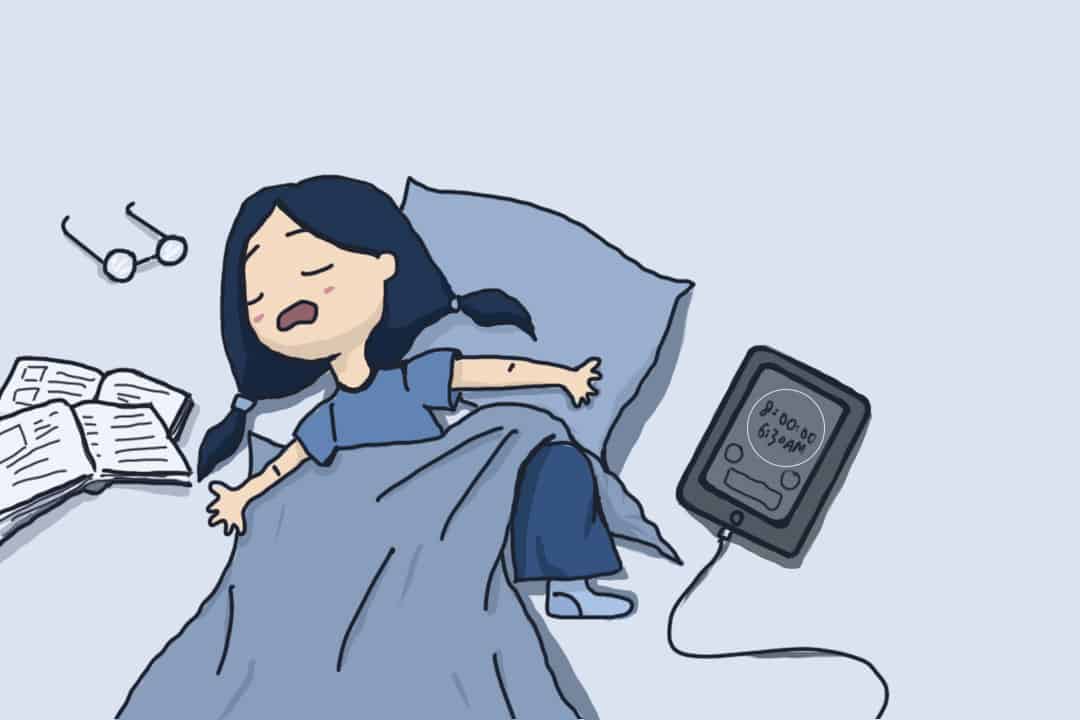My guess is that in almost every college classroom you visit, you will find a student complaining that they only got five hours of sleep, and another chiming in and saying they only got two. This is a common and played-out scenario on most college campuses, including U of T, and I believe a culture that promotes toxic productivity is at the heart of it.
Lack of sleep may be trivialized and shared on social media by students as humorous content, but it can be very dangerous. As students continue to normalize sleep deprivation with comedy, they fail to acknowledge the dangerous consequences of not getting enough sleep.
How is sleep important for learning?
Sleep is a memory aid for learning. Sleeping before learning improves our ability to form new memories. This has been demonstrated in numerous studies that also show that sleep deprivation can impair memory formation and the ability to learn.
However, a piece of positive news for those who love taking naps is that a simple daytime nap can give one a 20 per cent learning advantage. From a scientific perspective, this restoration of learning is associated with a lighter, non-rapid eye movement sleep. Sleeping six hours or less deprives one of this learning restoration benefit.
Also, sleep is just as crucial after learning as it starts the process of consolidating memories, like the ‘save’ button on a computer.
How does your body suffer from sleep deprivation?
An unhealthy amount of sleep equates to an unhealthy heart — shorter sleep is associated with an increased risk of dying from a heart disease. A lack of sleep accelerates your heart rate, increases your blood pressure, and further erodes the fabric of strained blood vessels.
Furthermore, getting less than seven to eight hours of sleep at night increases the probability of developing type-2 diabetes. This is partly because your body cannot manage your calorie consumption effectively, and partly because you tend to eat more when you are awake for longer.
A lack of sleep can also compromise the reproductive system in both males and females, as reproductive hormones and organs, along with the phenomenon of physical attractiveness are affected by short sleep.
The fact that the health of your immune system is associated with the amount of sleep you get is no shocker to most. However, the reality is that a single night of reduced sleep can affect one’s immune system.
Insufficient sleep also deteriorates the essence of biological life — our genetic code. It changes the activity of the genes and the physical structure of the genetic material.
What does this mean for U of T students?
The effects of sleep listed here are a reader’s digest version. To fully understand the expansive effect that sleep has on our brain, body, and lives, I would suggest reading Why We Sleep by Matthew Walker, a neuroscience and psychology professor at UC Berkeley.
I hope that the evidence in favour of getting more sleep implores everyone at U of T to seriously consider how they can incorporate more sleep into their schedule. Furthermore, it is important to acknowledge the damaging effects of the toxic productivity culture at U of T, which promotes working above sleep. Overall, sleep as an afterthought is detrimental and ‘eight hours of sleep’ should be more consistently and actively encouraged at U of T.
Shreya Vanwari is a third-year psychology student at Woodsworth College. She is the local affairs columnist in The Varsity’s Comment section.


